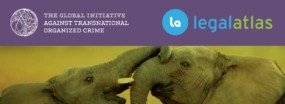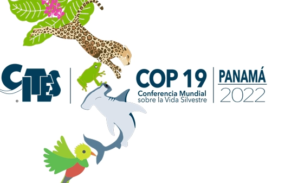Posted on 09 Aug 2023
The arrest of two macaque smugglers in June 2023 by officers from Thailand’s Natural Resources and Environmental Crime Division highlighted ongoing concerns about the illegal macaque market in the Mekong region, heightened worries about the possibility of another pandemic and underscored the critical need for effective cooperation on border biosecurity measures.
Biosecurity is critical to protecting public health, ecosystems and a country’s economy. As countries become increasingly interconnected through global trade, travel and movement of goods, the importance of maintaining robust biosecurity measures at a country’s borders cannot be overstated. These measures are designed to prevent the entry of potentially devastating pests, diseases and invasive species, which could have serious economic, environmental and human health consequences.
This is particularly the case in the Mekong region, where some 350 million people live in an area of 540 000 square kilometres, putting enormous pressure on the fragile ecosystem. The region has a number of formal and informal border crossings, resulting in highly permeable markets and frequent cross-border flows of licit and illicit goods, animals and people across borders. Many of the traded commodities are derived from wildlife and natural resources, with direct or indirect implications for biological threats, the most serious being the risk of zoonotic pathogens. This is perhaps best illustrated by the 2003 emergence of the highly pathogenic avian influenza (H5N1) virus in the Mekong, which led to a global pandemic.
Strong coordination between the security and health sectors along the region’s borders is essential to promote effective border biosecurity and to mitigate and prevent the spread of biological threats throughout the region. However, a 2022 study by the Hanoi University of Public Health and the Global Initiative Against Transnational Organized Crime (GI-TOC) found that law enforcement officials stationed at border areas may not have training or knowledge of biological threats moving across these areas. The report also highlighted a worrying lack of cross-sectoral engagement, revealing significant understaffing of health authorities in the field, making collaboration among the sectors even more challenging.
Improving cross-border collaboration
In response to the escalating challenges posed by transnational organized crime and emerging biological threats, the GI-TOC organized two events aimed at improving the preparedness, response and cooperation among front-line officers in the Mekong region.
The first event was a two-day biosecurity conference held in Bangkok in March 2023, which brought together security sector officials, civil society and One Health representatives to discuss the challenges and opportunities of building multi-sectoral partnerships to mitigate future global health crises. Supported by the Australian Department of Foreign Affairs and Trade (DFAT), the Asian Development Bank and the British Medical Journal, this meeting provided an important platform for fostering collaboration across sectors, broadening perspectives and forging valuable connections.
The second event, in June 2023, was part of an expert briefing series by the GI-TOC and DFAT. This online session, featuring speakers from the Mekong region, aimed to highlight perspectives on illegal wildlife trade in the Mekong and related biological threats. It also provided an opportunity for civil society actors to showcase their work and share valuable examples of success stories in responding to illicit markets in the Mekong.
Although these events are the first of their kind, they were able to provide valuable cross-sectoral networking opportunities and demonstrate effective approaches across different sectors and agencies.
Some key challenges that continue to hinder effective inter-agency collaboration are the lack of systematic mapping and gap analysis to identify areas for improvement in the current WHO national One Health plans (particularly for countries with shared land borders), and the need to formulate a strategic regional One Health action plan, exploring sustainable sources of funding to support regulatory and surveillance activities in the region.
New initiatives should aim to address these issues in order to strengthen the capacity of front-line officials to proactively address and combat the complex security landscape in the Mekong region. The GI-TOC remains committed to contributing to the improvement of this issue.



